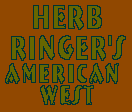 |
||||||
|
|
We had the truck about half loaded when Lester lifted down one of the canvas water bags and took in a big swallow, spit it out, yelled, "Pisswater." He shook the bag in front of Enos. "Damn," Enos said, "slipped my mind." He was supposed to have filled the bags with fresh water when he gassed up the truck down at ranch headquarters. "Not much mind left to slip, you ask me," Lester said. "Didn?t ask," Enos said. He put his hooks into a bale, pulled it tight to his belly, walked it to the flatbed. "World’s not perfect," he said. "You might learn that." He went for another bale and Lester looked at me. I grinned back at him. He tipped the water bag. Stale, warm water left over from Monday poured out. Enos said, "Better go to the creek." "By god, I will," Lester said. He took off. Enos nodded at the other bag, the one that hung on the right-hand rearview mirror bracket. I grabbed it and caught up with Lester and we had us a little stroll to Badger creek. At the plank bridge I cut down through high timothy and red clover and flopped on the bank and took in some of that crystal clear water, right off the top. My drinking made bottom grains of sand and fool’s gold move in little swirls. I saw a caddis fly larva pull its stone case across a dark rock. I leaned out and put my head under water and opened my eyes and saw minnows flickering, keeping their heads upstream in fast current. I sat back and let water run down my face. Lester hadn’t drunk yet. He’d taken the tin cup that hung on a willow branch next to the bridge and set his bag on some water cress. He kneeled down and made two sweeps with the cup, one upstream, one downstream, using the heel of the cup to clear the surface. There was no need of that, Badger creek being as clean as a high mountain spring. Lester dipped the cup, brought it up full. He was making a little sound, like a sleepy cat. He took another cupful and poured it on his head and sat there perfectly still, his eyes partly shut. Then he uncapped the bag and filled the cup and spilled a silvery arc of water into the bag. It gurgled, deep inside the canvas. We filled both bags that way, cup by cup. Myself, I would have dunked the bags to fill them quick and then sat there for a minute, no more than that, all the time wondering if I could steal another minute from the day. That wasn’t Lester’s way. He was taking time from the day, but not exactly stealing it. He’d done that before, more than once, like when he came up with a new way of stacking bales on the truck bed. After some messing around, which was restful, we ended up with four extra bales in the load. Enos thought that was good, but not worth the trouble. We went back to the regular way. We hauled the bags to the truck. Grasshoppers were rasping away in stubble and uncut hay under the buck fences. They never let up. I wondered how they could stand it, all summer long, their whole life out there in dry heat with only a thunderstorm once in a while to bring them a bit of wetness. Enos had the load topped off. I handed him a water bag and he took a long swig. He pulled out his watch, a silver-backed turnip with a lid over the face. He flicked the lid open. His fingers were like old roots. Enos must have been somewhere in his sixties, at least. He was a hard-scrabble rancher with a few acres, a few Herefords and a BLM grazing lease. He’d finished his own haying and had hired out to Harker for a little extra, what he called winter grocery money. I knew he’d snap the watch shut and put it away without a word, unless he was asked. Lester and I more or less took turns at that. I asked. Enos said, "Nine twenty five". He got in the cab. I climbed on top the load. Lester started climbing, but the truck started up and Lester stepped back to the ground and staggered, caught his balance, but then I saw him decide to go all the way down. He did, and yelled, "Hey old man what the hell you think you’re doing?" He kept on yelling and cussing. Enos stopped the truck, stepped out, looking worried. "Lester, you all right?" Lester made a big show of getting up and hobbling, grabbing at his knee, and he threw in some more cussing. I think Enos saw through all that. I know I did. It was Lester messing about with work time again, putting his stamp on the day. Oh sure, there was some bad feeling mixed in. I had some of that too. One of the things that really bugged me about old Enos was the way he got through each day without the work ever beating him down to the limit. He’d sweat away under his black Stetson, and I’m sure his spit was as sticky as mine and he’d have to stop and pick itchy foxtail seed out of his shirt and take off the hat once in a while and mop his face, but the old guy always ended up at quittin’ time looking about the same as in the morning. That could be aggravating for a couple of guys just out of high school. Well, the fun was over. Enos right away got over his scare that Lester had been hurt. The way he got back in the cab showed he’d had about enough of Lester’s guff. He waited, made sure both of us were back on top the load, started the truck and we went on as before, the day already smouldery hot. Somehow noon always came around just when we’d finished stacking a load in the hay shed. Enos with his turnip managed that. We’d get out our lunch pails and pick bales for seats. Enos would pour coffee out of his thermos and settle back to stare at the mountains. Once in a while he’d give out a bit of commentary, nothing like real stories, just ordinary stuff about the way things were, downhill since the war. I never asked which war. I can’t recall Lester or me ever asking him much of anything, such as where he’d come from or where his family had scattered to or how many cows he ran on his place and how they’d wintered. Nothing personal like that. We’d ask the time of day, that was about it. At one o’clock sharp we were back in the fields to take the first tough bite out of the afternoon. We made three or four round trips, cleaned up Harker’s next-to-biggest hayfield. Vern and Preacher and Maury were working the fields north of the butte. Enos drove us into a long, narrow field next to the swamp, a place where Badger creek slows and spreads. Swamp hay there, grass with some sedges. Usually we traded off on the driving, keeping the old International in lowest gear. Quite often whoever was at the wheel would step out of the cab to bring in a bale or two and the truck would trundle along by itself at about the right speed and well behaved, its shadow crinkling across the stubble. The mountains beyond the butte were all shimmery in heat haze. Enos pulled out his watch, flicked the lid. Lester called out, "Well, old man, what’s it say?" Enos looked up, stared at Lester for a second or two, his blue eyes steady. He’d had enough of the "old man" stuff, that was plain enough. He put he turnip away and stepped into the cab. Lester yelled, "Hey, I asked you the time." He cursed and threw out more insults I can’t remember and then he jumped up on the flatbed and banged on the cab roof. Enos got out of the cab, but not to pay Lester any mind. He hooked a bale that was almost hidden in the un-mowed swamp edge. Lester, quick as a cat, slid to the ground and reached in under the steering wheel and opened the hand throttle. He stepped back, barely in time. The truck gave a jump. It was like it’d waked up, decided it didn?t want anything more to do with us. Enos stood up from his bale, saw what was going on, made as if to chase the truck, then changed his mind. He tipped his head sidewise at Lester, meaning, "It’s all yours." Lester shook his head. He was wearing a white dress shirt hand-me-down, all streaked and smeared with dust and sweat, but it still passed for white and what with his red bandana sweat band and a hay hook in each hand, damned if Lester didn?t look like a mean old pirate. Well, Enos had hooks in his hands too, his face shadowed by his Stetson, but I could see the red-veined tightness over the bridge of his nose, and his eyes squinted, his mouth thin and dry. I was thinking it was strange, how I’d been working with him day after day and hadn’t taken a real steady look at him. And a thought struck me, Lester and me would be old, if we lived long enough. That time might come. Not a new idea, but just then it had me paying sharp attention to Enos. To Lester too, to just about everything, the heat and the mountains lost in haze and the singing of the damned grasshoppers. It woke me up. I saw I’d better do something. The truck saved me the trouble. It let out a squeal, its left rear wheel was digging away at the bottom of a dip in the ground. The wheel found new traction and gave the truck a big lurch and climbed out onto the level and met a bale and straddled it and shuddered and Lester said, "Look at that, humpin’ that bale." The truck broke the bale and went on, veering left, headed on a bee-line for the swamp. Enos laid his hooks on a bale, hung both hands on his belt, said, "Lester, my boy, it’s all yours." Lester didn’t like "my boy," that was clear enough, but he didn’t have any come-back handy. Besides, that truck was headed for disaster. Lester took off, running. I followed him, caught up and got ahead of him and threw my hooks in the cab, jumped in, hit the brake. The motor bucked and choked itself off, its nose up against a solid strip of sedges and beyond that, cattails and black water. I backed the truck out. Lester got into the cab. I said, "You?re crazy." He took off his headband and mopped his face. He asked me how far I thought the truck might have sunk. "Take a tractor or a team to pull it out," I said, "but it wouldn’t matter. First thing Harker’d do is lay us off." "Not you, Sandy. Just me. My fault." "You damn dummy," I said. "Harker’s been keepin’ an eye on us." I started the truck, headed back to where Enos was bringing in bales, piling them in one heap. Lester said, "What the hell you talkin’ about?" "I’m talkin’ about what I heard Harker tell one of the balers, saying he’d gotten stuck with a couple of whelps." "Whelps?" "Yeah, whelps. That’s exactly what he said. You know, teenage pups." I pulled up to the bales Enos had collected. Lester was being thoughtful, looking through the windshield where the sun glared, showing up every nick in the glass. He smoothed out his bandana, taking his time, put it on, not saying anything. I got out and went for a bale. Enos stayed quiet, Lester too. I drove the truck. Wasn’t long before we had another load. I grabbed a water bag and handed it to Lester, but hung onto it for a couple beats so he could see me staring hard at him, trying my best to send him a message. Then I let go and Lester unscrewed the top and started to tip the bag up to take a drink, but then he lowered it and handed it to Enos. Enos gave that some thought, then grabbed the bag, shook it, made it gurgle, took a long drink, handed it back to Lester and wiped his mouth and adjusted his hat. Lester wiped his mouth with a sleeve and drank. I took my turn. From all around the only sounds were the damned raspy music of the grasshoppers. I noticed the sun was low. We’d broken the back of the day. Enos took out the turnip. Lester didn’t ask, neither did I. Enos took a quick look at the time, snapped the lid shut, said, "Ten to four."
This piece is taken from Martin’s new novella, "Lester and Me," Packrat Books, 2007. |
|||||







 One
bit of luck came my way that summer, a pair of well-made hay hooks
with sharp tips and long gentle taper, just right for slipping into
tight-crimped alfalfa bales. It’s little things like that can
make a difference around two o’clock in the afternoon when bales
put on weight and the sun stands still. This particular Tuesday, the
day the truck got away, was one of those times, only more so, the sun
coming up like fury and right off the bat Lester making a wrong move.
One
bit of luck came my way that summer, a pair of well-made hay hooks
with sharp tips and long gentle taper, just right for slipping into
tight-crimped alfalfa bales. It’s little things like that can
make a difference around two o’clock in the afternoon when bales
put on weight and the sun stands still. This particular Tuesday, the
day the truck got away, was one of those times, only more so, the sun
coming up like fury and right off the bat Lester making a wrong move.